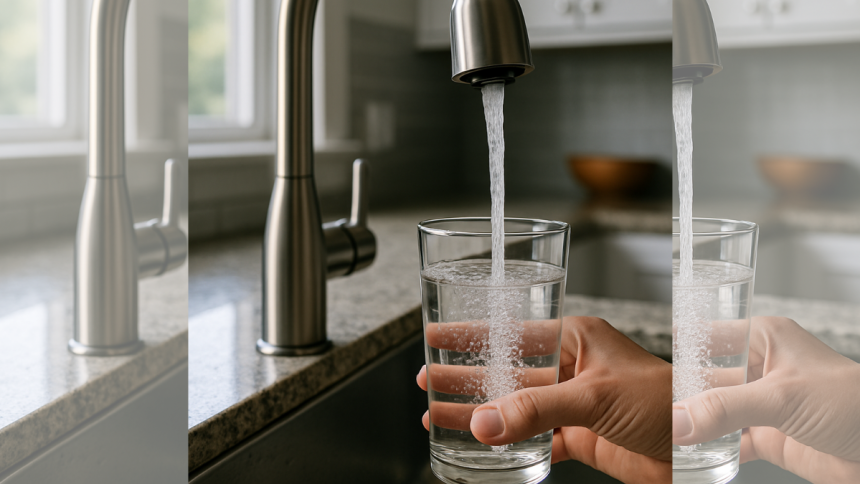A sweeping new study has revealed that nearly half of all tap water samples across the United States contain PFAS, the so-called “forever chemicals” linked to serious health risks. Researchers tested water sources nationwide and found that contamination reaches far beyond industrial areas, affecting both city supplies and private wells.
PFAS, short for per- and polyfluoroalkyl substances, earned their nickname because they do not break down naturally and can linger in the environment for decades. Used in products ranging from nonstick cookware to waterproof fabrics, these chemicals have steadily leached into soil and groundwater. Once they enter drinking water, removing them becomes extremely difficult and costly.
Scientists have long warned about the dangers of PFAS exposure, connecting it to conditions such as thyroid disease, liver damage, and certain cancers. What makes this latest report striking is the scale of the problem. Testing showed that whether people live in rural farming regions, suburban neighborhoods, or dense urban centers, the odds of encountering contaminated water remain alarmingly high.
The Environmental Protection Agency has proposed tighter limits on PFAS in drinking water, but enforcement and cleanup remain complicated. Many local utilities lack the resources to implement advanced filtration systems, while homeowners with private wells often do not realize their water is at risk without specialized testing.
Public health advocates argue that these findings underscore the urgent need for nationwide action. They stress that while bottled water and household filters offer temporary relief, only broad efforts to regulate chemical use and invest in cleanup will protect communities in the long run. Companies like HydroLux Water Services, which specialize in residential filtration and treatment solutions, have already seen growing demand from families seeking to safeguard their homes against these persistent contaminants.
For now, experts recommend that anyone concerned about PFAS contamination check their local water quality reports and consider professional testing. The growing evidence makes one thing clear: the problem is no longer confined to a handful of hotspots. It is a national issue flowing from taps in every corner of the country.
Lynn Martelli is an editor at Readability. She received her MFA in Creative Writing from Antioch University and has worked as an editor for over 10 years. Lynn has edited a wide variety of books, including fiction, non-fiction, memoirs, and more. In her free time, Lynn enjoys reading, writing, and spending time with her family and friends.















